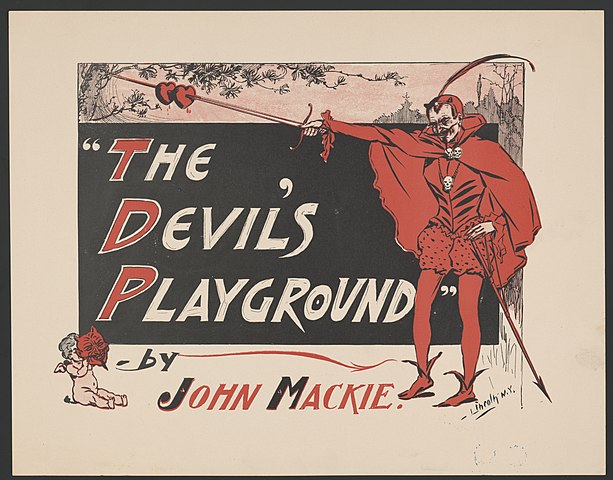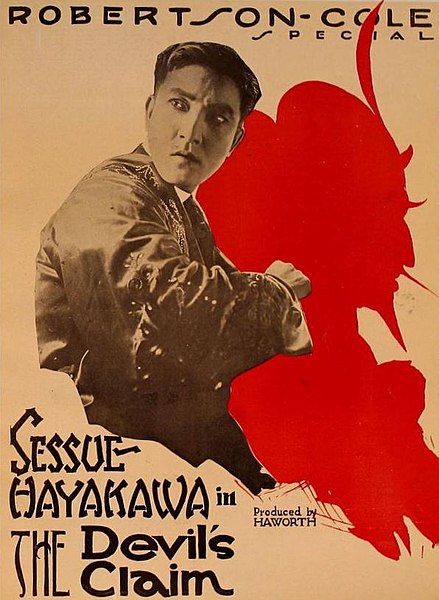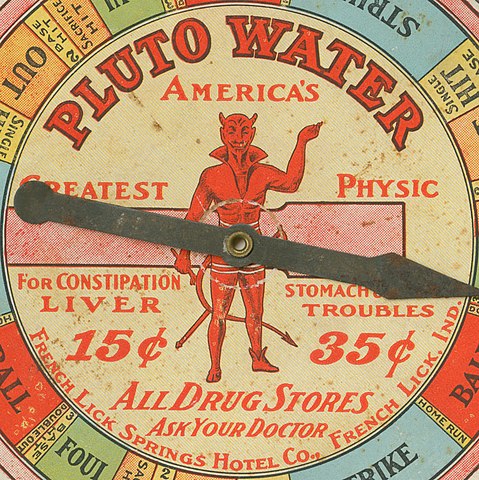
A book acquired by the Thammasat University Library explores the personification of evil as conceived in different cultures and religious traditions.
The Devil: A New Biography is by Philip C. Almond, Emeritus Professor of Religion in the University of Queensland, Australia.
It joins other books in the TU Library on related cultural subjects.
With many different names across the world, the figure of the devil has influenced history, religion, art, literature, and culture.
In an essay posted online, Professor Almond explored the re-emergence of the Devil in twentieth century popular Western culture:
The Exorcist was a film that reminded audiences of the numinous Other that had been present in Western consciousness for more than two thousand years. It told of a being that represented the dark side of the Holy, one that had been personified as the evil one, the Devil. Audiences were horrified and appalled, yet captivated and fascinated.
The Exorcist was the beginning of a re-engagement with the demonic in film, television, literature, and music that has lasted into the twenty-first century…
The re-emergence of the Devil in popular, if not in elite, Western culture is part of a new Western engagement with the imaginary enchanted world of preternatural beings both good and evil – of vampires and fairies, witches and wizards, werewolves and wraiths, shape-shifters and super-heroes, angels and demons, ghosts and dragons, elves and aliens, succubi and incubi, hobbits and the inhabitants of Hogwarts, and zombies. And it is imbedded in the re-emergence of a set of esoteric and occult technologies of the self (both from the East and the early modern West) that serve to enhance meaning where neither science nor matter-of-fact knowledge are useful – astrology, magical and spiritual healing, divination, ancient prophecies, meditation, dietary practices, complementary medicines, and so on. The modern enchanted world is one of multiple meanings where the spiritual occupies a space between reality and unreality. It is a domain where belief is a matter of choice and disbelief willingly and happily suspended.
Whether we believe in the Devil or not is now a matter of choice. It was not always so. For the better part of the last two thousand years, it was as impossible not to believe in the Devil as it was impossible not to believe in God. To be a Christian was not only to believe in the salvation that was available through Christ, but also to expect the punishments inflicted by Satan and his demons in the eternal fires of hell for those not among the chosen. The history of God in the West is also the history of the Devil, and the history of theology also the history of demonology.

The Devil in Thailand and beyond
TU students may have seen the series of Thai horror films, Art of the Devil and they are certainly aware of the devil-like figure in Buddhism, Mara, who symbolizes the death of the spiritual life.
There are similarities and differences between Mara and the Devil of monotheistic religions.
In the West, the Devil is seen as a significant figure, while in Buddhist mythology, Mara is less prominent.
Devadatta is another villainous character in Buddhist tradition.
Here are some thoughts about the devil from noted authors, most of whom are represented in the TU Library collection:
- The devil, you see, is that friend who never stays with us to the end.
Georges Bernanos, Monsieur Ouine (1943)
- The Devil himself, which is the author of confusion and lies.
Robert Burton, The Anatomy of Melancholy (1621), Part III, Section IV
- Wherever God erects a house of prayer,
The Devil always builds a chapel there:
And ’twill be found, upon examination,
The latter has the largest congregation.
Daniel Defoe, The True-Born Englishman (1701)
- The Devil is not the Prince of Matter; the Devil is the arrogance of the spirit, faith without smile, truth that is never seized by doubt. The Devil is grim because he knows where he is going, and, in moving, he always returns whence he came.
Umberto Eco in The Name of the Rose (1980)
- One is always wrong to open a conversation with the devil, for, however he goes about it, he always insists on having the last word.
André Gide, 1917, in Journals 1889–1949
- Why should the devil have all the good tunes?
Rowland Hill, sermon, reported in Edward W. Broome, The Rev. Rowland Hill: Preacher and Wit (1881)
- It is stupid of modern civilization to have given up believing in the devil, when he is the only explanation of it.
Ronald Knox, Let Dons Delight (1939)
- The devil is an optimist if he thinks he can make people worse than they are.
Karl Kraus, Die Fackel
- The devil hath power
To assume a pleasing shape.
William Shakespeare, Hamlet (1600-02), Act II, scene 2
- The devil can cite scripture for his purpose.
William Shakespeare, The Merchant of Venice (c. 1597), Act I, scene 3
- One sees more devils than vast hell can hold.
William Shakespeare, A Midsummer Night’s Dream (c. 1595-96), Act V, scene 1
- What, man! defy the devil: consider, he’s an enemy to mankind.
William Shakespeare, Twelfth Night (c. 1601-02), Act III, scene 4
- The devil seeks slaves and claims obedience.
Rabindranath Tagore, Fireflies (1928)
- We have enslaved the rest of the animal creation, and have treated our distant cousins in fur and feathers so badly that beyond doubt, if they were able to formulate a religion, they would depict the Devil in human form.
William Inge
- Once you are dancing with the devil, the prettiest steps won’t help you.
E.T. A. Hoffmann
- Always be busy, so that whenever the devil calls, he may find you occupied.
St. Jerome
- However much I have frequented the mystics, deep down I have always sided with the Devil; unable to equal him in power, I have tried to be worthy of him, at least, in insolence, acrimony, arbitrariness and caprice.
Emil Cioran
- The devil is compromise.
Henrik Ibsen
- The devil doesn’t know how to sing, only how to howl.
Francis Thompson
- The Devil is not the Prince of Matter; the Devil is the arrogance of the spirit, faith without smile, truth that is never seized by doubt. The Devil is grim because he knows where he is going, and, in moving, he always returns whence he came.
Umberto Eco in The Name of the Rose (1980)

(All images courtesy of Wikimedia Commons)
